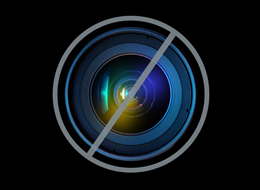
The number of children and teens taking antipsychotic medications has skyrocketed in recent years, with psychiatrists prescribing the drugs in nearly one-in-three visits with youth, a new study found.
The drugs are not only being prescribed for schizophrenia and bipolar disorder, but also for the commonly diagnosed attention deficit hyperactivity disorder (ADHD). Many mental health experts say that the powerful medications come with serious potential side effects and that their effectiveness has not been proven in treating the disorders for which they're increasingly prescribed.
"The growth in antipsychotic treatment of children -- roughly eight-fold in 17 years -- is especially impressive," said study author Dr. Mark Olfson, a professor of clinical psychiatry at the College of Physicians and Surgeons of Columbia University.
"Practice has overstepped research," he said. "These rapidly rising rates of antipsychotic treatment in young people should give physicians pause."
For the new study, published online this week in the Archives of General Psychiatry, Olfson and colleagues categorized people into two groups: children for those up to 13 years old and teens for those aged 14-20. They looked at data from doctor's office visits collected over several decades, and compared data from 1993 to 1998 with that from 2005-2009. The number of doctor's visits in which an antipsychotic was prescribed jumped from 0.24 percent to 1.83 percent in children, and from 0.78 percent to 3.76 percent in teens.
"[That] is a pretty big leap -- not huge, but substantial," said Dr. Michael Houston, an associate clinical professor of psychiatry and pediatrics at the George Washington university medical center and a member of the American Academy of Child and Adolescent Psychiatry. "Whether or not it is bad news is hard to determine," added Houston, who was not involved with the study.
Doctors primarily prescribed the drugs because of behavior disorders and ADHD, the study found, which is considered "off-label" use. The Food and Drug Administration has approved use of antipsychotics in youth primarily for treating schizophrenia, bipolar mania, Tourette's syndrome and irritability stemming from autism -- but the study found that only a small proportion of treatment was for one of those approved uses.
Doctors most commonly prescribed the antipsychotic drug named risperidone, but the authors write that "uncertainty surrounds" the appropriateness of using that drug, as well as other antipsychotic medications, to treat ADHD and other behavior disorders.
"Although antipsychotic medications can deliver rapid improvement in children with severe conduct problems and aggressive behaviors, it is not clear whether they are helpful for the larger group of children with ADHD," Olfson said.
There are also unanswered questions about antipsychotics' long-term effect on children's brains, he said. And studies have suggested that there are serious potential side effects, like rapid weight gain and increased risk of diabetes.
The study's authors offered-up several possible explanations as to why the drugs are being increasingly prescribed for children and teens.
One suggestion is that more and more children are being diagnosed with conditions such as bipolar disorder and autism spectrum disorders, and the FDA has approved the use of antipsychotics under those circumstances. One in 88 children in the U.S. has been diagnosed with an autism spectrum disorder, according to the Centers for Disease Control and Prevention. The study authors also suggested that the rise in the number of drugs -- at least six new antipsychotics have been introduced to the market in the last 15 years -- could help explain the increase in prescriptions.
For his part, Houston said "the factor that stands out the most -- and is reflected in the study's data -- is that far fewer kids are receiving psychotherapy and other psych-social interventions than we would like to see."
This, he said, could be due to the reduced rates at which those therapies are reimbursed by insurance companies, as well as an "extreme shortage" of child and adolescent psychiatrists. Indeed, the new study found that more and more children are being prescribed antipsychotics by their pediatricians.
The takeaway for parents, he said, is that they should be vigilant in questioning whether or not the drugs are appropriate for their child.
"When such medications are recommended, parents should ask a lot of questions," he said. "'What other types of treatment, including therapy, are available? What are the possible risks, and how will my child be monitored to possibly avoid [them]? How long will my child be on this medication?'"
No comments:
Post a Comment